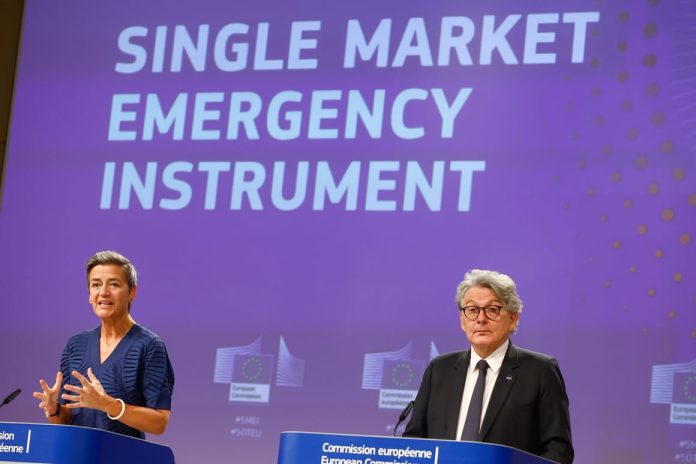EU leaders agreed rules on Thursday that would require European companies to prioritise the production of key goods to prevent a supply chain crisis like the one caused by the COVID-19 pandemic.
The European Commission proposed the creation of a single market emergency tool last year, following in the footsteps of the United States and Japan. The move was also prompted by a dispute with AstraZeneca over delays in delivering COVID-19 vaccine doses to 27 European Union countries in 2021.
The political agreement reached on Thursday softened part of the EU executive’s proposal after criticism from businesses concerned about demands that would force them to break commercial contracts and disclose corporate secrets. The agreement also strengthened the role of EU countries vis-à-vis the Commission.
The Commission, under new powers, will be able to issue so-called priority requests to buy critical goods or services from companies that may or may not accept them. It can also offer companies exemptions to ensure that its orders are prioritised to the detriment of the companies’ other contractual obligations.
The new rules allow EU countries to jointly procure crisis-related or critical goods and services. The EU executive can ask companies for data on stock levels of certain goods, but companies can refuse if they explain the reason for the refusal. Lawmaker Andreas Schwab, who led negotiations for the European Parliament, said:
“Today we made the internal market better equipped to face the future crises.”
